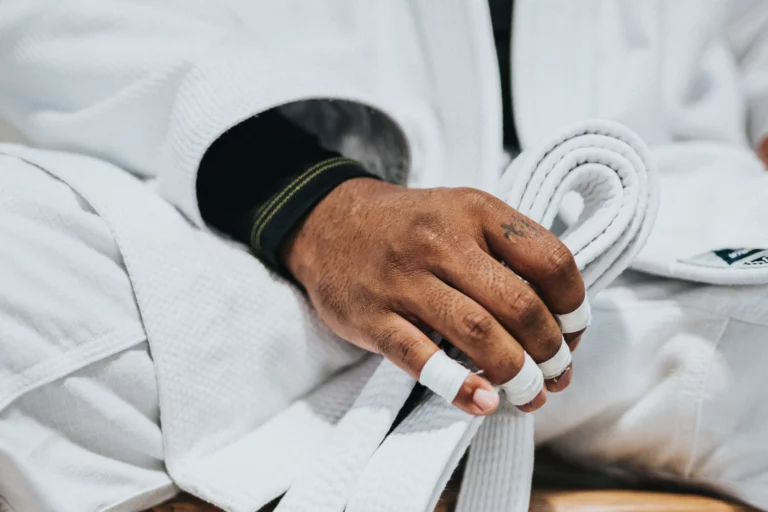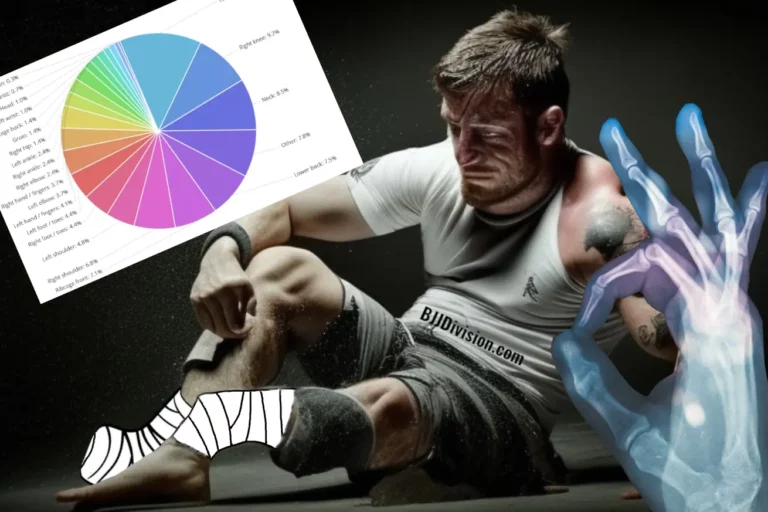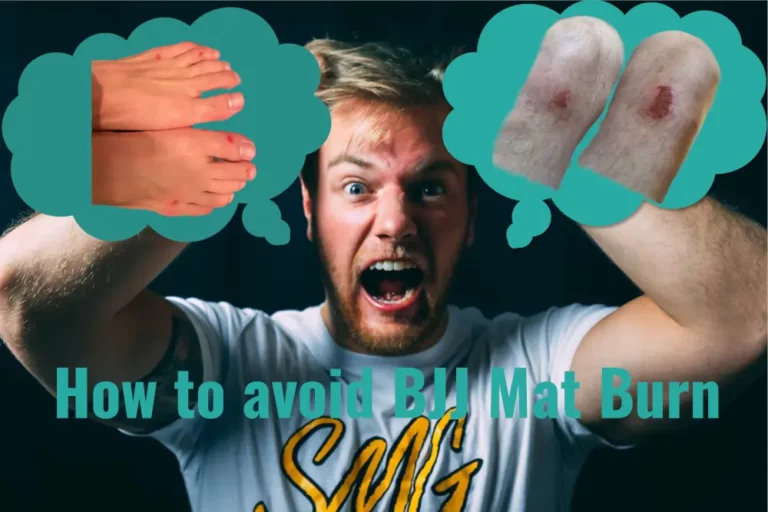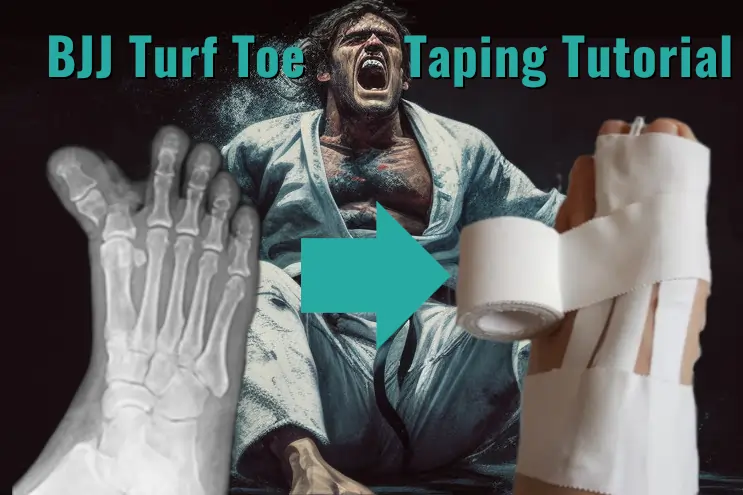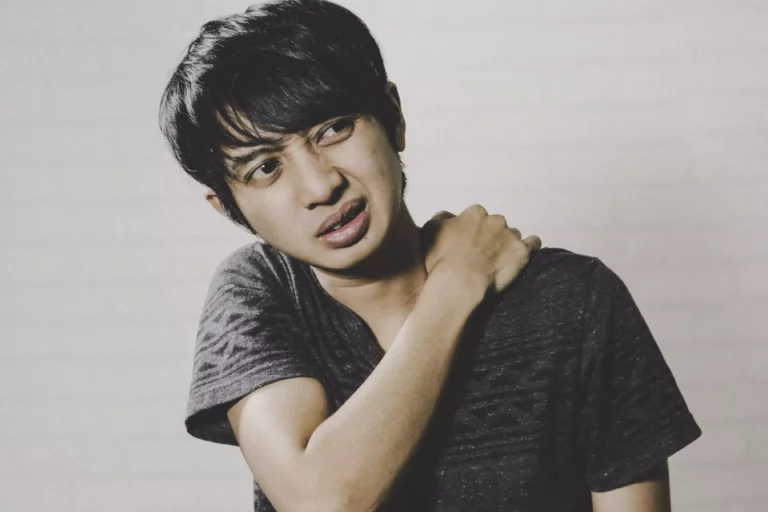BJJ Ringworm: Can you train? Symptoms, Treatment, Prevention
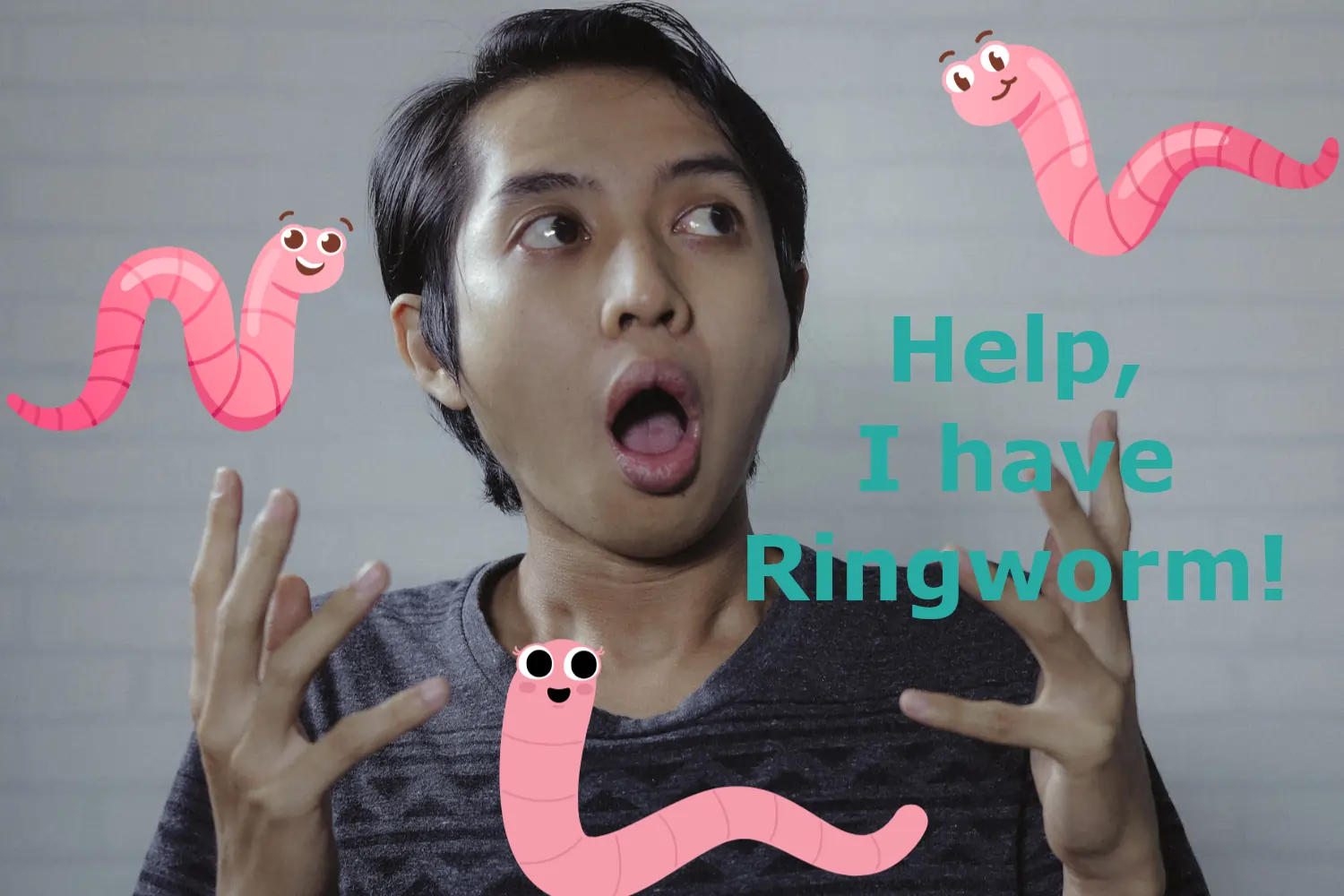
Ringworm is a fungal infection caused by dermatophytes, which can occur on every superficial part of the body. Brazilian Jiu-Jitsu practitioners have an increased risk of contracting ringworm due to the close contact during training. See our article on injury statistics in BJJ to find out how common BJJ Ringworm really is.
This article will help diagnosing, treating, and preventing BJJ ringworm as well as give guidance on how to handle a ringworm infection in the context of Jiu Jitsu. However, it does not replace professional medical advice and you should always consult a medical professional if you are affected.
BJJ Ringworm FAQ
In this section you will find the short answer to your question on ringworm. Keep reading the article to get in-depth explanations.
Symptoms of Ringworm
Ringworm is fairly easy to diagnose by sight (see image below). Additionally, examination of skin samples through a microscope can verify the diagnosis. Common symptoms of ringworm include:
- Circular rash on the skin that is usually elevated
- Redness and itchiness
- Thinning or breaking hair in the affected area.
- Dry and flaky skin in the affected area
- Fever or swollen lymph nodes (less common)
Not every symptom listed above appears in every instance of ringworm. If you show at least one of the symptoms, you should not rule out a fungal infection but have the affected area examined by a doctor.
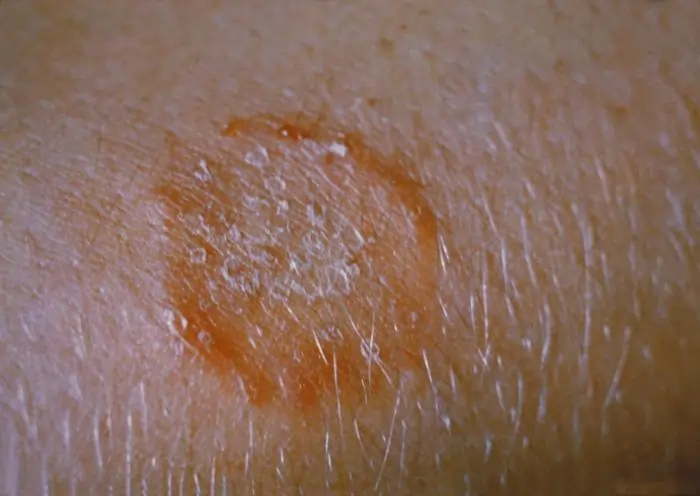
Treatment of Ringworm
If you suspect to have a Ringworm infection, it is important to seek medical attention as soon as possible to avoid spreading of the infection. Your doctor will be able to diagnose the condition and prescribe the appropriate treatment.
Treatment may include certain behavior rules and the use of antifungal medications, such as creams or ointments, or oral medications. The latter are usually reserved for more severe and prolonged cases as treatment should be limited to the affected area of the skin if possible.
You can aid recovery by using antifungal soap:
Ringworm Causes
Ringworm is caused by a fungus called dermatophyte. The most common causes for Ringworm are:
- Transfer via direct skin contact with an infected area on another human
- Transfer through contact to contaminated belongings of an infected person (e.g. athletic gear)
- Transfer via contact to animal (dogs, cats etc.)
BJJ athletes have an increased risk for ringworm infections since the following factors increase the chance of outbreaks and transmission:
- Humid conditions
- Excessive sweating
- Wearing tight clothing
Prevention of Ringworm in BJJ
Preventive measures for Ringworm infections in Jiu Jitsu can be derived from the causes listed above. Therefore, you should try to avoid infectious people and materials as well as not give the fungi the warm and moist environments they need.
This is what you can do everyday to decrease the risk of BJJ Ringworm:
- Shower immediately after every training session
- Wear protective clothing instead of training shirtless
- Try to avoid touching characteristic infected areas on others
- Wash clothing with antifungal detergent
- Call attention to ringworm infections of training partner to avoid further spreading
- Make sure the mats and training equipment is regularly cleaned and disinfected
- Try looser-fitted clothing
Additional general best practices to avoid Ringworm infections:
- Washing hands after each contact to animals, soil, or plants
- Excessive hygiene attempts can damage the skin and make it susceptible to fungal infections
Conclusion
Unfortunately, skin infections like ringworm are among the annoying infections/injuries that are part of the sport, just like Turf Toe and finger injuries. Check our specific taping guides if you are affected. We must combine our preventive efforts to minimize spreading and keep heaving fun.
Generally, ringworm is a common fungal infection that can affect anyone, especially BJJ practitioners. It is highly contagious and can be transmitted through direct or indirect contact with an infected person.
To reduce your risk of contracting ringworm, it is important to practice good hygiene, avoid sharing personal items with others, and wear protective gear when training. If you suspect that you have ringworm, it is important to avoid further contact and seek medical attention as soon as possible to receive proper treatment.


